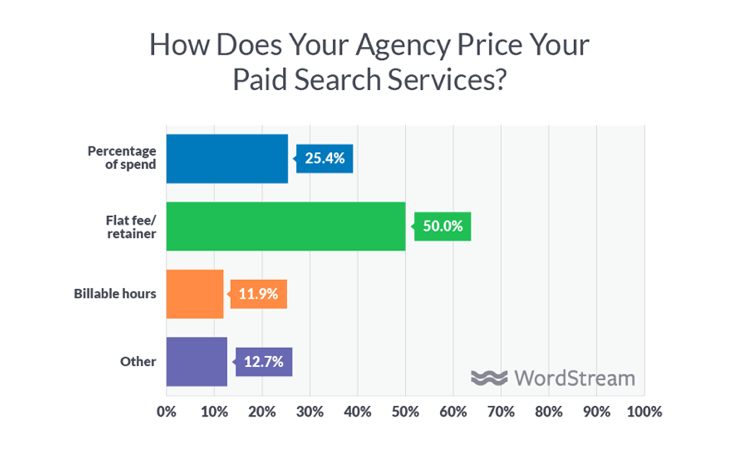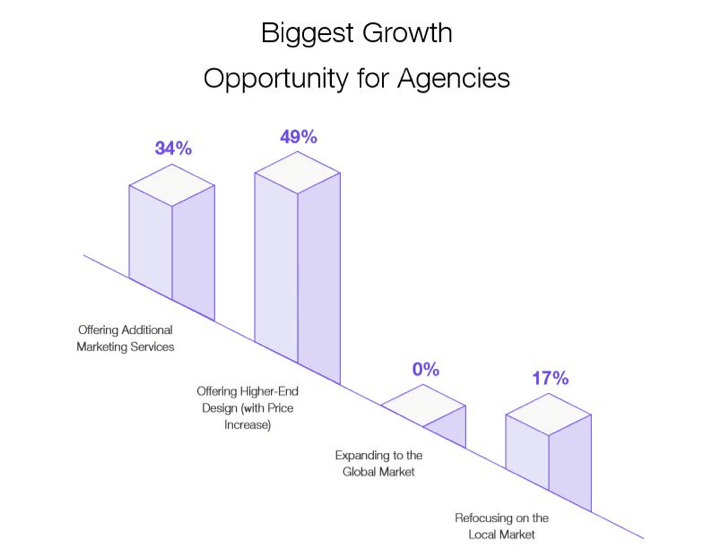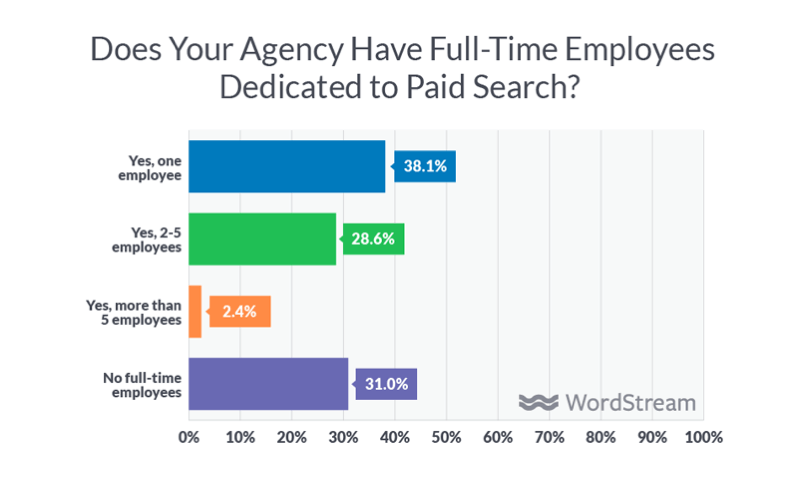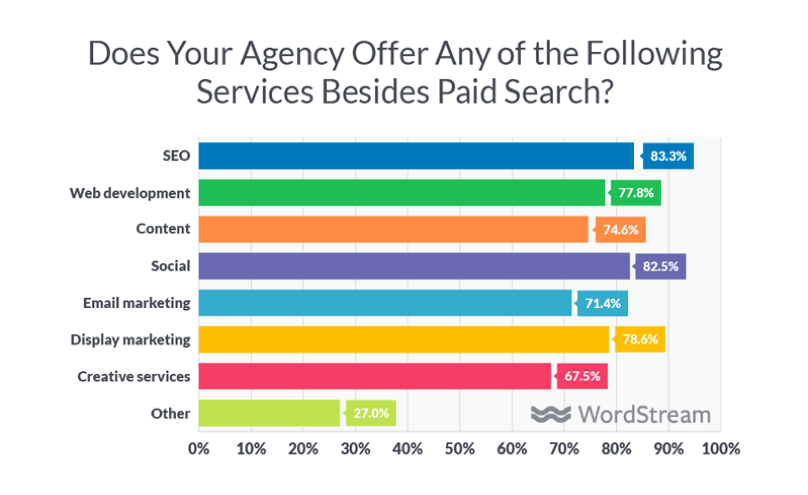A big part of running a successful agency is well-managed finances. Getting your agency budgeting right can make all the difference
Running an agency is no easy task.
You have to go on a tiring process to acquire the right type of clients that want the solution you offer.
At the same time, you have to hire employees to build the best team to render your services. On top of that, you have to put a system in place to ensure seamless collaboration between your team members for maximum productivity.
Of course: there’s also managing your agency's finances.
How do you budget your agency resources to maximize profits?

1. Settle on a costing model
To budget your resources properly, you have to find the best costing model suitable for your agency. Using the wrong costing model for your clients could lead to losses.
Here are common costing models available to marketing agencies:
- Fixed fee: For this type of costing model, your client will pay a specific amount for a project with clear specifications. For a fixed fee costing model, you have to consider factors like the number of tools needed, personnel involved, and likely completion time before arriving at a value.
- Time-based fee: This is a type of costing model where you charge your clients based on the amount of time it takes to complete the project. This might be best for consultants who have one-on-one meetings with their clients.
- Value-based fee: Your clients pay based on the value you provide to their business rather than the amount of time you spend.
- Results-based fee: For an agency that's just growing, this might be a way to attract clients. After all, you only get paid when your clients make money. However, you have to be careful with this model to avoid losing money.
In a nutshell, the simplest costing model to manage your resources is the fixed fee. That's why it's so popular among agencies.
In the State of the Marketing Agency Report by WordStream, they found that 50% of agencies charge their clients a fixed fee.

With this model, it's easier to make all your calculations about a project before arriving at a profitable value. Likewise, setting income goals and making forecasts for a period is more efficient.
2. Calculate the fixed overhead cost
For every business, there are fixed recurrent costs during a particular period. Whether you acquire many clients during this period or fail to bring in clients, costs won't vary.
In other words, your fixed overhead costs are independent of the number of projects you execute. Some common fixed overhead costs for an agency are:
- Rent: Even though agencies do the majority of their business online, it's necessary to rent an office space. This could serve as a meeting place with clients as well as a workspace for some of your employees. It also improves local SEO to attract local clients. In a Wix study, agency representatives listed "Refocusing on the local market" as one of their biggest growth opportunities.

- Fixed salaries: When a worker's salary is independent of the amount of work they do, this is a part of fixed overhead costs.
- Taxes and insurance: In most cases, these are fixed costs your agency will incur over a period.
The best practice to manage your agency resources as well as possible is to minimize your fixed costs. This ensures that when there's a low amount of work, fixed costs won't wipe out your savings.
Download our Business Resource – Digital marketing budgeting and costing approaches spreadsheet
These templates are designed for marketing agency team members who create estimates/costings for either existing client online marketing projects and campaigns or for new business proposals.
Access the Digital marketing budgeting and costing approaches spreadsheet
3. Calculate the variable overhead costs
For an agency, it's better to maintain more variable overhead costs than fixed overhead costs. Because these are dependent on the amount of work you do during a period.
Examples of variable overhead costs include:
- Hiring of freelancers: Since freelancers only get paid when they work, the amount your agency pays depends on the amount of work a freelancer does. Many agencies now use freelancers to reduce fixed overhead and overall cost. Through this, you eliminate the costs of a bigger office, furniture, computers, utilities, etc. This is evident in WordStream's report where about 70% of agencies have one or no full-time employees dedicated to paid search.

- Utilities: The cost of utilities like electricity and water can vary based on usage during a period.
- Equipment for servicing clients: For your agency, you need to consider both physical and software tools used in providing value for clients.
Calculating variable costs can be more difficult than fixed costs. But it's necessary to determine your overall costs and find opportunities to cut costs.
4. Use a project management tool
With a project management tool, you can improve the efficiency of your project execution. One of the biggest advantages of a project management tool is that it helps you to track how much time you spend on various types of projects.
As a result of this, you can cut down the time needed to execute a project. This means lower costs for your agency. Furthermore, a project management tool improves collaboration between your team members.
Every team member can see different tasks for a project and the team member responsible for each stage. More so, it's easy to track every stage of a project from the beginning to completion.
Don’t overlook the importance of being very organized and ensuring easy communication; a project management tool can genuinely make it easier for you to calculate your costs and make your project execution more efficient.
5. Perform analysis for different marketing channels and their requirements
If you're running a marketing or advertising agency, there are many channels your clients can use to promote their business. However, each channel requires a unique strategy to acquire the best results possible.
Some marketing channels your agency might use to promote your clients’ businesses are:
- SEO: This involves marketing businesses on search engines. Prospects searching for a client’s business can easily find them.
- Content marketing: Prospects can get relevant information at different stages of the buyer’s journey through valuable content.
- Social media: By taking advantage of the billions of social media users, a business can increase brand awareness and attract a huge amount of traffic to its website.
- Email marketing: Through personalized and automated emails, nurturing leads in the sales funnel becomes more effective.
For instance, here are services agencies offer apart from paid search:

Detailed analysis of these channels results in accurate costs for clients to ensure you provide the best services without sacrificing profits. In addition, you can hire the best team members to provide the right expertise for each marketing platform.
Conclusion
Running an agency successfully requires that every aspect of the agency works effectively. From acquiring clients to managing employees, you need to be on top of all the vital activities.
Perhaps, one of the most important tasks is managing your agency resources such as time, money, and personnel. Follow these 5 vital tips to help you achieve better productivity for your agency budget.













